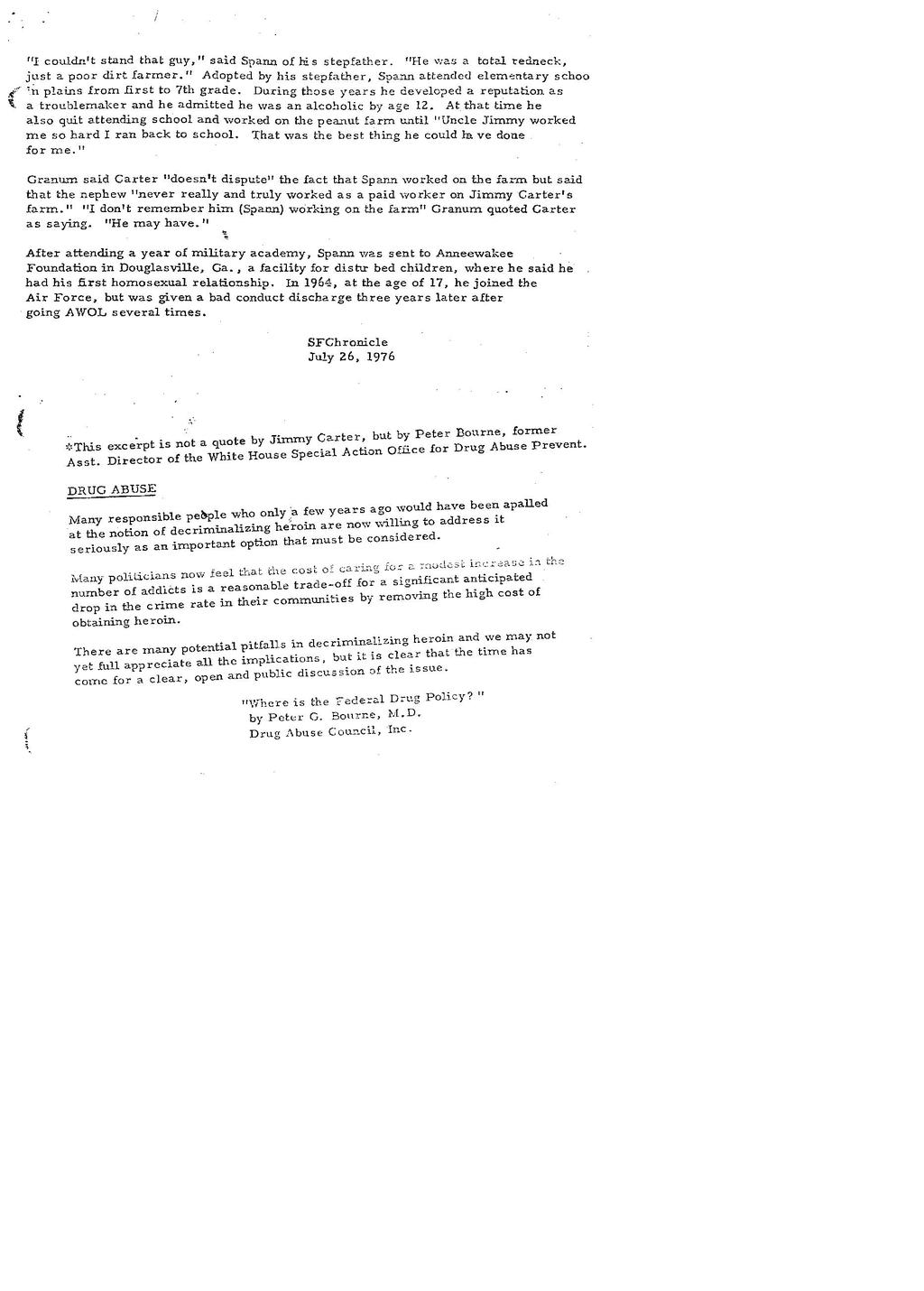"I couldn't stand that guy," said Spann of his stepfather. "He was a total redneck, just a poor dirt farmer." Adopted by his stepfather, Spann attended elementary school in plains from first to 7th grade. During those years he developed a reputation as a troublemaker and he admitted he was an alcoholic by age 12. At that time he also quit attending school and worked on the peanut farm until "Uncle Jimmy worked me so hard I ran back to school. That was the best thing he could have done for me."
Granum said Carter "doesn't dispute" the fact that Spann worked on the farm but said that the nephew "never really and truly worked as a paid worker on Jimmy Carter's farm." "I don't remember him (Spann) working on the farm" Granum quoted Carter as saying. "He may have."
After attending a year of military academy, Spann was sent to Anneewakee Foundation in Douglasville, Ga., a facility for disturbed children, where he said he had his first homosexual relationship. In 1964, at the age of 17, he joined the Air Force, but was given a bad conduct discharge three years later after going AWOL several times.
This excerpt is not a quote by Jimmy Carter, but by Peter Bourne, former Asst. Director of the White House Special Action Office for Drug Abuse Prevent.
DRUG ABUSE
Many responsible people who only a few years ago would have been apalled at the notion of decriminalizing heroin are now willing to address it seriously as an important option that must be considered.
Many politicians now feel that the cost of caring for a modest increase in the number of addicts is a reasonable trade-off for a significant anticipated drop in the crime rate in their communities by removing the high cost of obtaining heroin.
There are many potential pitfalls in decriminalizing heroin and we may not yet full appreciate all the implications, but it is clear that the time has come for a clear, open and public discussion of the issue.
